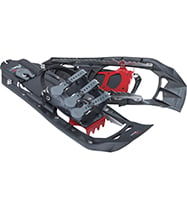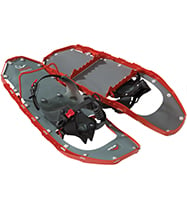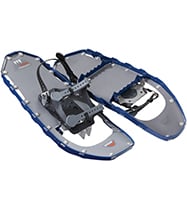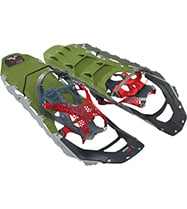Snowshoe Sizing: How to Pick Your Perfect Length
Aside from bringing a thermos with a hot lunch or drinks, one of the easiest ways to ensure a great time snowshoeing is to make the right choice when considering snowshoe sizing. One of your snowshoes’ most important jobs is to provide “flotation”, keeping you from sinking too deeply into the snowpack. The amount of flotation you need is what drives your choice of snowshoe length. A bigger snowshoe means more surface area, which, in turn, means more flotation. Generally speaking, the “right” snowshoe is one that delivers the flotation you need, while being small enough to keep you nimble on the trail.
Here are some quick tips to help you make the right choice in snowshoe sizing:
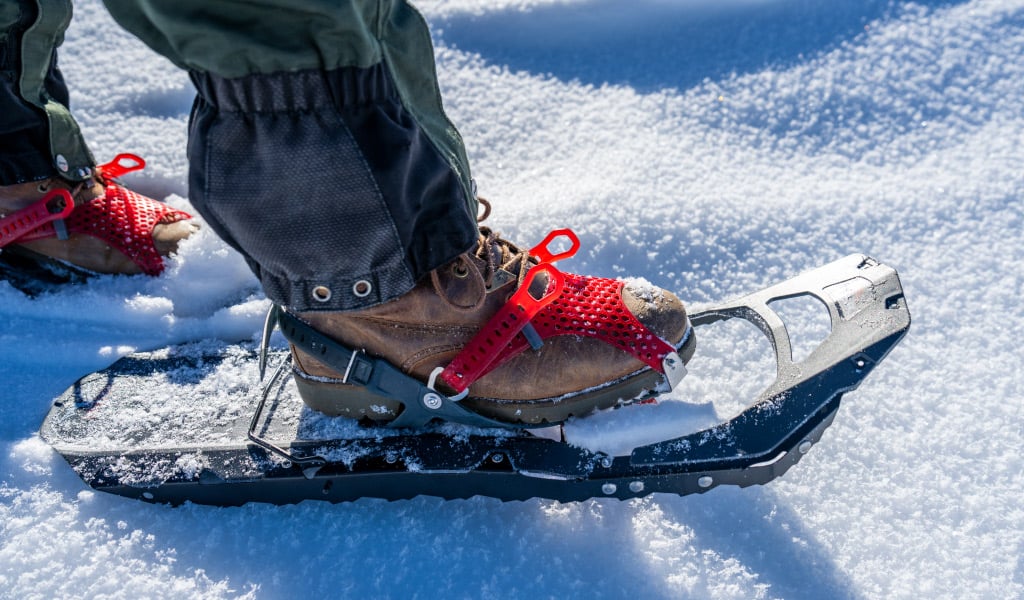
First: The Majority Rule
When considering the following variables, it’s easy to get bogged down in the thought that you want a snowshoe that does it all–from hard pack to deep powder. This can leave you in a lurch between two sizes, or considering a shoe that might end up being too big for the majority of what you’ll actually do. While many MSR snowshoes offer a unique innovation that allows such do-it-all versatility, your base snowshoe size should address the conditions and places you snowshoe the majority of the time. More on this later.
Your Weight, Plus Gear
The more you weigh, the more flotation you need. While snowshoeing, be sure to consider your body weight PLUS the gear and clothing you’ll be wearing on most of your snowshoeing adventures. Include an estimate of your backpack contents as well. As a starting point, try adding 10–15 lbs. for a simple day of snowshoeing on a trail.
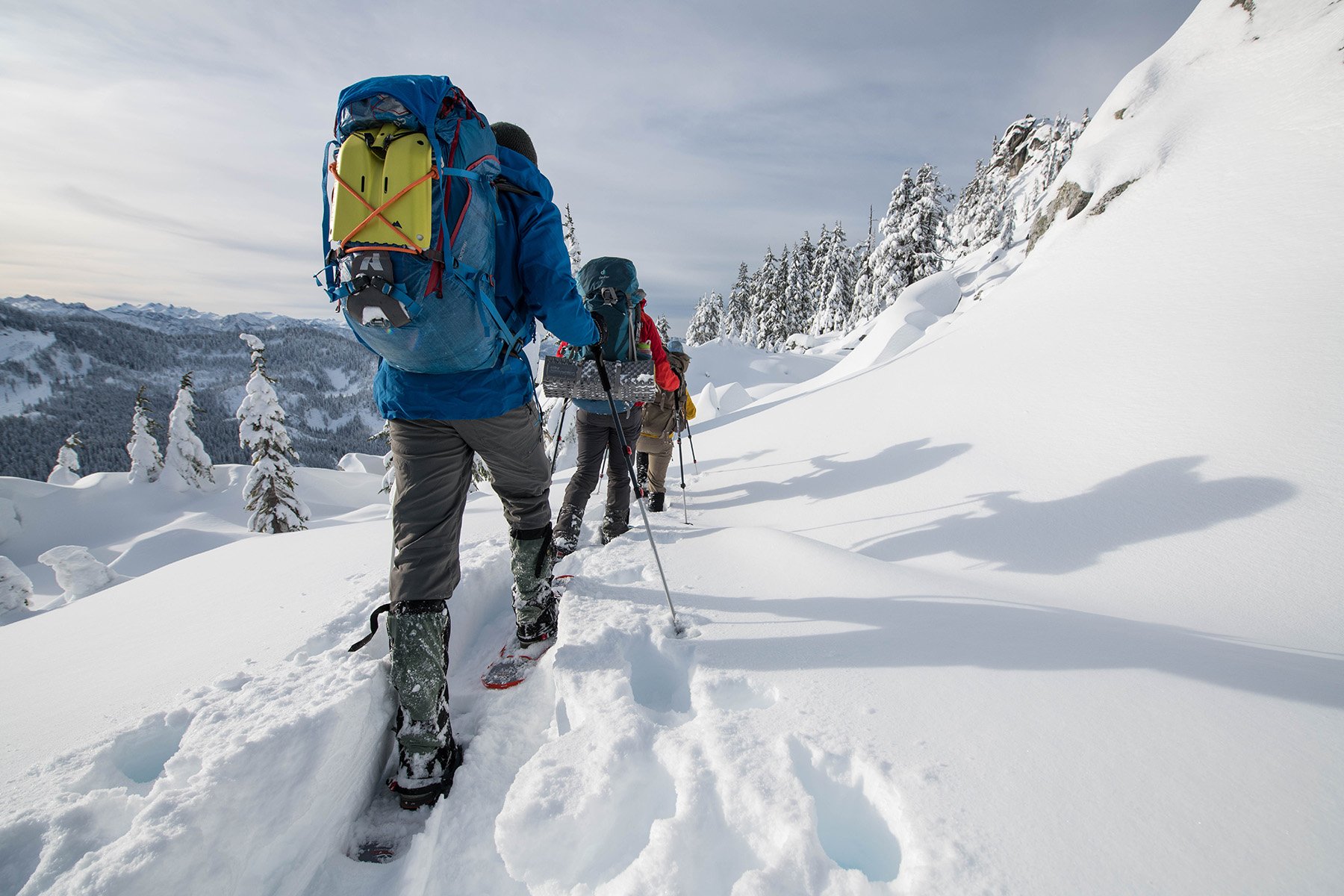
Snow Conditions
Think macro. If you’re trudging through a deep, powdery, mid-winter snowpack in northern Minnesota or the Rockies, you’ll need more flotation to keep you from sinking than you would in the dense maritime snowpack of the Western Sierras or Pacific Northwest.
Now think micro. Consider where you snowshoe within your local environment. Do you snowshoe off-trail most of the time, where unconsolidated snow is the norm, or on packed-out or established trails where traction, more than flotation, is your biggest concern?
Maximize Your Range
Remember the Majority Rule? The theory is, you don’t want to buy a giant pair of snowshoes for that once-a-year Snowmagedeon event, if you spend 80% of your time on established trails or in consolidated snow. If you do, you’ll spend 80% of your time wishing you had bought the smaller size. For this conundrum, MSR invented the ultimate solution–the snowshoe tail. MSR snowshoe tails allow you to take advantage a smaller “base” pair of snowshoes for optimal ease of walking and to add tails for more flotation on-demand. If 22-inch snowshoes suit you for most trail and snow conditions, adding a pair of tails will likely cover the extra weight you’ll carry on that winter backpack you have planned, or help float you through that huge powder day you’d been wishing for.
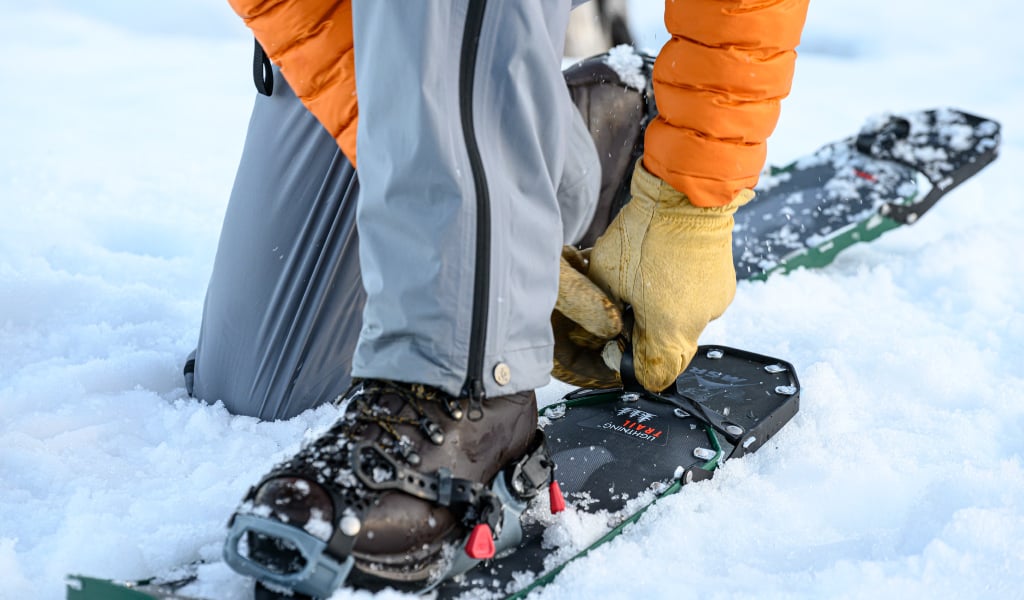
Women’s Snowshoe Sizing
Our women’s snowshoes were developed after extensive, expert gait analyses revealed that a slightly narrower shoe (about 3/4” narrower than equivalent Men’s snowshoes) would result in a more natural and efficient gait for the majority of women. The difference in flotation is minimal, and the added efficiency and ease of walking can be appreciated by anyone–men or women–with a narrow gait.
Snowshoe Sizes for Big Shoes
All MSR bindings are designed to accommodate a Men’s US 6 – 13 (Men’s and unisex shoes) and a Women’s US 5 – 13 (Women’s snowshoes). However, should you have a larger size shoe, or use a large-shelled boot (like a snowboarding or plastic mountaineering boot) in the upper range of this sizing, we recommend considering the TriFit or DuoFit bindings on our Evo Ascent and all “Trail”-designated shoes. These strap bindings allow for the widest range of adjustment to ensure proper alignment of large boots over the snowshoe’s pivot point.
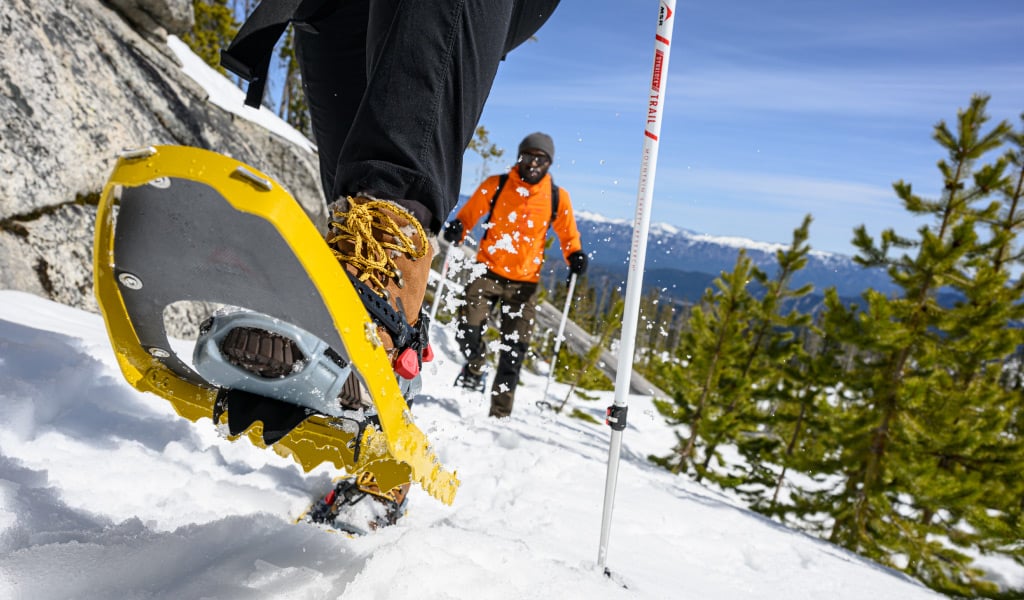
Making the Call
In reality, we humans seek the path of least resistance and snowshoeing in deep powder, as fun as it can be for short periods, is plain hard work. This means we tend to seek out established tracks, or places where the snow is naturally dense, even in the backcountry. While it’s tempting to get that giant snowshoe that can handle bottomless powder, you’ll be much happier with a smaller size for the majority of your trips, and adding some tails for those deep, off-trail days. The vast majority of people are served well with a pair of 22” or 25” snowshoes and tails.
With all of this in mind, here’s a quick reference sizing chart to simplify your choice even more:
| Your Weight | Packed Snow | Soft Snow | Soft and Deep Snow |
|---|---|---|---|
| 90-125lbs. / 41-57kg | 22 in / 56 cm |
22 in / 56 cm
|
25 in / 64 cm or 22 in / 56 cm + Tails |
| 125-175lbs. / 57-79kg | 22 in / 56 cm |
25 in / 64 cm or
22 in / 56 cm |
25 in / 64 cm or 22 in / 56 cm + Tails |
| 175-225lbs. / 79-120kg | 22 in / 56 cm | 25 in / 64 cm or 22 in / 56 cm + Tails |
30 in / 76 cm + Tails or 22 in / 56 cm + Tails or 25 in / 64 cm + Tails |
| 225lbs.+ / 102kg+ | 22 in / 56 cm or 25 in / 64 cm |
22 in / 56 cm + Tails or 25 in / 64 cm + Tails or 30 in / 76 cm + Tails |
30 in / 76 cm + Tails or 25 in / 64 cm + Tails |
Updated. Originally Published November 10, 2020.

